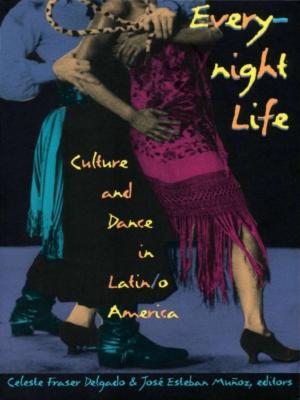Waves of Knowing
A Seascape Epistemology
Nonfiction, Social & Cultural Studies, Social Science, Cultural Studies, Ethnic Studies, Political Science, Politics, History & Theory| Author: | Karin Amimoto Ingersoll | ISBN: | 9780822373803 |
| Publisher: | Duke University Press | Publication: | October 13, 2016 |
| Imprint: | Duke University Press Books | Language: | English |
| Author: | Karin Amimoto Ingersoll |
| ISBN: | 9780822373803 |
| Publisher: | Duke University Press |
| Publication: | October 13, 2016 |
| Imprint: | Duke University Press Books |
| Language: | English |
In Waves of Knowing Karin Amimoto Ingersoll marks a critical turn away from land-based geographies to center the ocean as place. Developing the concept of seascape epistemology, she articulates an indigenous Hawaiian way of knowing founded on a sensorial, intellectual, and embodied literacy of the ocean. As the source from which Kānaka Maoli (Native Hawaiians) draw their essence and identity, the sea is foundational to Kanaka epistemology and ontology. Analyzing oral histories, chants, artwork, poetry, and her experience as a surfer, Ingersoll shows how this connection to the sea has been crucial to resisting two centuries of colonialism, militarism, and tourism. In today's neocolonial context—where continued occupation and surf tourism marginalize indigenous Hawaiians—seascape epistemology as expressed by traditional cultural practices such as surfing, fishing, and navigating provides the tools for generating an alternative indigenous politics and ethics. In relocating Hawaiian identity back to the waves, currents, winds, and clouds, Ingersoll presents a theoretical alternative to land-centric viewpoints that still dominate studies of place-making and indigenous epistemology.
In Waves of Knowing Karin Amimoto Ingersoll marks a critical turn away from land-based geographies to center the ocean as place. Developing the concept of seascape epistemology, she articulates an indigenous Hawaiian way of knowing founded on a sensorial, intellectual, and embodied literacy of the ocean. As the source from which Kānaka Maoli (Native Hawaiians) draw their essence and identity, the sea is foundational to Kanaka epistemology and ontology. Analyzing oral histories, chants, artwork, poetry, and her experience as a surfer, Ingersoll shows how this connection to the sea has been crucial to resisting two centuries of colonialism, militarism, and tourism. In today's neocolonial context—where continued occupation and surf tourism marginalize indigenous Hawaiians—seascape epistemology as expressed by traditional cultural practices such as surfing, fishing, and navigating provides the tools for generating an alternative indigenous politics and ethics. In relocating Hawaiian identity back to the waves, currents, winds, and clouds, Ingersoll presents a theoretical alternative to land-centric viewpoints that still dominate studies of place-making and indigenous epistemology.















